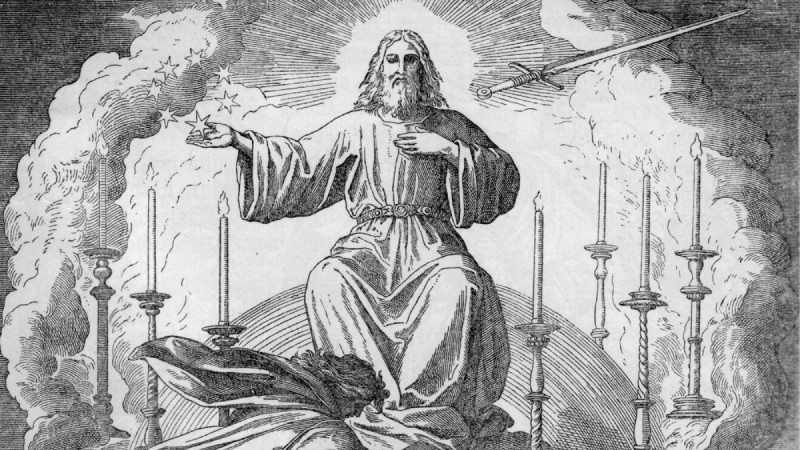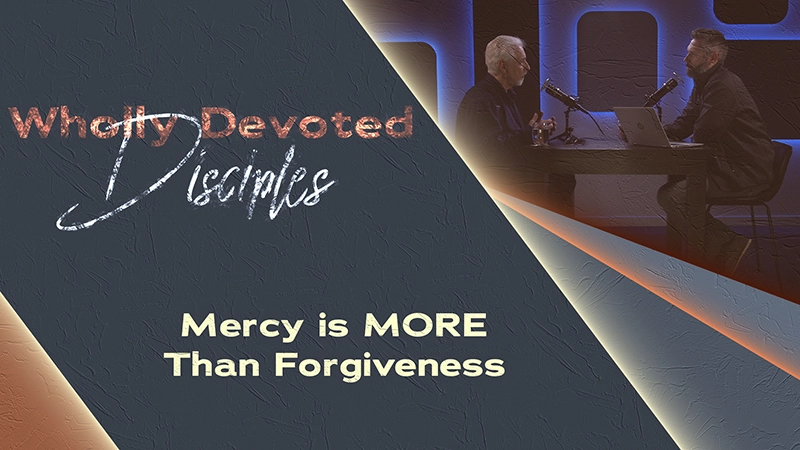
Timeless Truths: "Be Holy As I Am Holy"
God genuinely loves us, but unless we are doing our utmost to repent of sin and worldliness, He is not going to be pleased with us. And while He does not expect us to achieve sinless perfection, He does expect us to obey His call to "Be holy as I am holy."
Host: Steve Gallagher has joined me in the studio. Steve is the founder and President of Pure Life Ministries. Steve, it’s good to see you again. Thanks for coming by.
Steve: Happy to be here with you once again.
Host: Steve, as we continue our discussion in your book “Intoxicated with Babylon,” we're talking today about the command from God, “Be holy, as I am holy.” A.W. Tozer said, “We have learned to live with unholiness and have come to look upon it as the natural and expected thing.” Now in your book you share how looking back into the 1900s, holiness really used to be the expected thing.
{{blog-bbaby="/blog-ads-storage"}}
Steve: There was a time in the church when there was such a biblical standard amongst God's people that there was almost like a peer pressure to live a godly and holy life. There just were things that you didn't do. You didn't go out drinking or dancing or even things that we consider normal nowadays, like wearing makeup or jewelry. There were just things that Christians knew were not appropriate and it was understood across the entire church world that this was the way it was.
Host: Yes. And even though you're talking about how it was in the church, that had an impact all across our culture. If you look at 1940s America, there was still a significant influence towards at least some level of morality because of what the church believed and practiced.
Steve: I believe because of the level of consecration that was in the church in those days, there was still a great deal of spiritual power at work in our country. But as that level of holiness has dissipated over the last 50-60 years, so also has the power to go with it.
Host: Well, Steve, whatever happened to that concept of holiness in the church then?
Steve: I believe there are a couple of different factors that have come into play. First of all, theologically, some people took exception to that term. I know that there were those who under the name of holiness took it to extremes to where they lived a rigid lifestyle and we're very legalistic. But that was really a very small portion of those who were trying to live a holy life before God. For the most part, Christians who were endeavoring to live a holy life were doing it with a sincere heart and an earnest desire to live a godly life. But some people took an exception to that and over time they were able to demonize the term holiness in much the same way the liberal press has demonized the term abstinence in our day.
So, now it's almost a term that is politically incorrect within the church. You just don't hear about holiness anymore, and that's a terrible tragedy amongst God’s people. The other thing that came into play was television and all the other things that lured Christians into the world. That caused that separation from the world to disintegrate until really the church has become just one step away from the world.
Host: Well, Steve, regardless of our current understanding of holiness, the fact still remains that holiness is still a central requirement of being a true believer.
Steve: Absolutely. As you mentioned, God said, “You shall be holy, for I am holy.” And the book of Hebrews even says, “Without holiness, no one will see the Lord.” (Hebrews 12:14b, 1984 NIV) So we have to ask ourselves if we really believe what the Bible says. We have so watered it down and kind of ignored statements that are very clear-cut commandments because we don't want to live by them. So, we've just kind of created a different gospel that is without any requirements or expectations from this holy God. The problem with that is that when we stand before this holy God, all of that is going to be shown for what it really is.
Host: Well, Steve, before we get into a discussion about how we achieve holiness or how we pursue holiness in our lives, perhaps we should just stop here and define what it is. What is holiness?
Steve: Let me say what holiness isn't first of all. Holiness is not sinless perfection. When we're talking about holiness, we're talking about a spiritual condition where a person has become consecrated to the Lord to such a degree that he has an intimate, vibrant relationship with Jesus Christ. There is no outward ongoing sin in his life. There is no attachment to the world. There is a true flow of God's love through his life. I think that describes what holiness is.
Host: I wonder if one of the reasons that we have kind of discarded the concept of holiness is because when we hear things like, “There is no sin.” We just can't meet that expectation.
Steve: Yeah, if someone gets the idea in their mind that God is demanding sinless perfection then it can be overwhelming and demoralizing and the person just feels like, “What's the point? There's no way I can ever arrive at that place.” But that really isn't what God expects.
Host: So really, is it right to say then that holiness is something that God wants us to be pursuing?
Steve: Yes, holiness is something that we should be pursuing. The Bible uses the term sanctification to describe the process whereby God is extracting the sin, selfishness and pride out of our inner being and replacing it with Himself. As that exchange is going on, we are going through a process of becoming holy. I guess you could say it this way, holiness is the goal, and sanctification is the process to lead us to that goal. So, the pursuit of holiness is simply just the process of sanctification.
Host: Steve, you said in your book that separating oneself from the world does not necessarily bring a person into holiness, but it puts that believer in a position of being made holy. Can you explain what you mean by that?
Steve: Well, we all know about these different denominational groups that are completely separated from the outside. There are the Amish and there are some of the Mennonite or German Baptist groups, where they are a community unto themselves and they have anywhere from some to no connections with the outside world. That in itself does not make you a holy person. I have been around some of these folks and there is a refreshing innocence there because of that separation. But our separation is unto God. It's not enough to just be disconnected from the carnal world around us, we have to be connected to the Holy Spirit, to Jesus Christ. That is what true holiness is.
Host: Steve, one of the great misunderstandings that you talk about is this idea that holiness is a transactional thing and that it's just going to happen automatically. The thought of, “When I die, the Lord's just going to make me holy.” What place does actual holy living play into our preparation for the end of our life in this world?
Steve: That concept that you just mentioned has been propagated over the years by those who are seemingly frantically trying to maintain their life in this world and feel no expectation from God to change. And so, they've kind of devised this entire scenario where they can just live like the devil basically and then one day they die and go to heaven because they said a prayer and went forward at an altar call one time. That is decidedly not what the New Testament teaches. It is very, very clear in Scripture that we are being, first of all, tested during our time here on earth. We're going to prove out where our heart lies and the reality of our commitment to Christ. Secondly, we are being prepared for eternal life. We are being trained on this earth to be used by God in the eternal realm in ways that we don't even understand yet. These are things that are beyond our comprehension and yet it seems to be the case that God is doing a definite work inside of us here to prepare us for something eternal.
Host: Amen. What would you say to the individual that may be listening who has a sight of the holiness of God, yet when they look at themselves just see how unholy they are?
Steve: Well, that's a great thing really, because that's exactly what should happen. When you truly see the Lord, you realize how far you are away from His standard and the way that He is, but there is a freedom in that because God loves sinners. He really does love us and all He asks of us is to fight. All He's asking is that we strive towards holiness. That we do our best to live a life pleasing to Him and do our utmost to repent of sin. That we do our best to turn away from the things of this world and turn to Him. As long as we are in that battle, God is pleased with our lives.

















